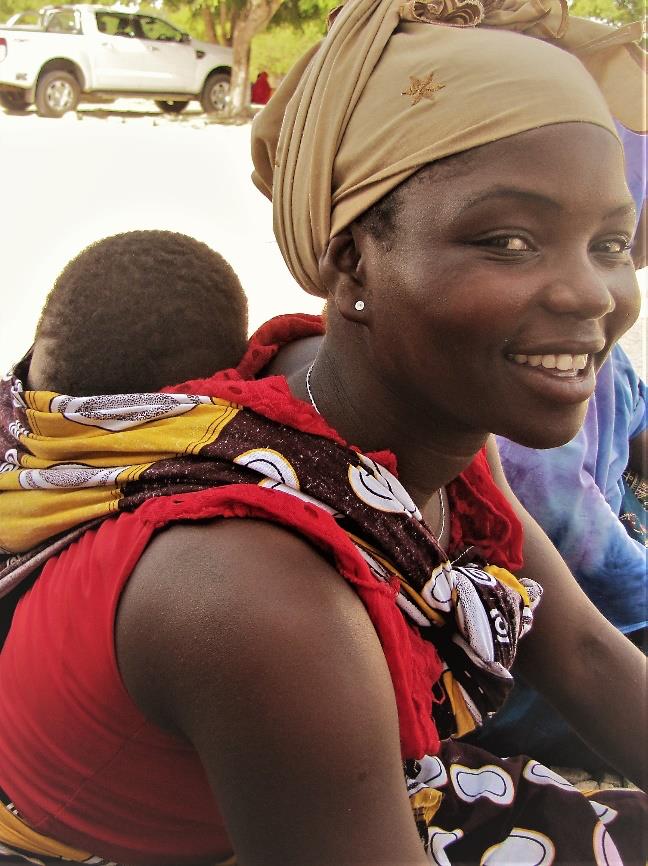ICDP Mozambique continues to participate in the Child Grant project. This project is run by the Ministry of Gender, Children and Social Action (MGCAS) with support from UNICEF and technical assistance of ICDP.
The Child Grant (0-2 years) is an unconditional cash transfer programme targeting children living in poor or vulnerable households with the objective of reducing poverty, improving child wellbeing and promoting access to social services. The care component of the Child Grant 0-2 is comprised by nutrition and case management.
The case management or Acompanhamento Familiar consists of the support provided to families affected by situations of specific risk and/or to those who are classified as most vulnerable. Regular home visits are conducted by case workers to offer direct support to primary caregivers, their children and other members of the households (e.g, psychosocial and counselling or information for parents) as well as to facilitate referrals to community and statutory services. A beneficiary family is followed for a period of 6 months of intervention and 3 additional months to check on the sustainability of the results achieved.
To implement the afore-mentioned case management component, UNICEF , in consultation with the Ministry of Gender, Children and Social Action (MGCAS), identified a need for technical assistance and on-the-job coaching of government technical staff and volunteers at Provincial and District level of MGCAS, with the ultimate aim of leaving a cadre of social welfare officers able to provide quality case management support to vulnerable families and children and those at risk, within the context of the child grant (0-2 years). In view of the above, UNICEF invited ICDP Mozambique to provide technical and coaching support, following extensive hands-on experience in Mozambique in psychosocial support and, more recently, (child protection) case management. The support by ICDP focuses on providing:
i) support to the development and adaptation of case management tools, job aids, training packages and materials for relevant case management actors and programme stakeholders;
ii) on-the-job coaching of relevant staff;
iii) support to staff who supervise and monitor the work of others and to provide quality case management for child protection cases.
When managing each case, an optional and participatory methodology, in which individual knowledge and experiences are valued, is adopted. The process includes identifying risks and constraints and support selected beneficiaries to overcome them. It involves referring beneficiaries to services that they would not have access to without proper support. Each intervention plan is designed in working sessions with the families and jointly agreed upon in order to result in an individualized follow-up at the family home. Home visits take place weekly for a maximum of 9 months of intervention.

Throughout the various phases of intervention, case managers are monitored with regard to data collection tools.
Knowledge and capacity of staff at District level is improving, as well of the district services quality of interventions. The government organizations have improved control of the cases, responses, referral pathway and statistics. Results could be used as an advocacy tool to get more resources in order to extend at national level.
Community and District level services connection: Case management has supported the interlinkages between communities and social services. The community is now aware of the existence of an official service that they can reach out for help and social services understand better the needs of the families.
Cash & Care: Early serious nutrition problems were detected and referred to the adequate service. A significant number of baby deaths was identified, and the tools were improved to get a more accurate verbal autopsy. Additional supports, like grants for families with multiple needs (disabilities, child headed households) have been provided.

